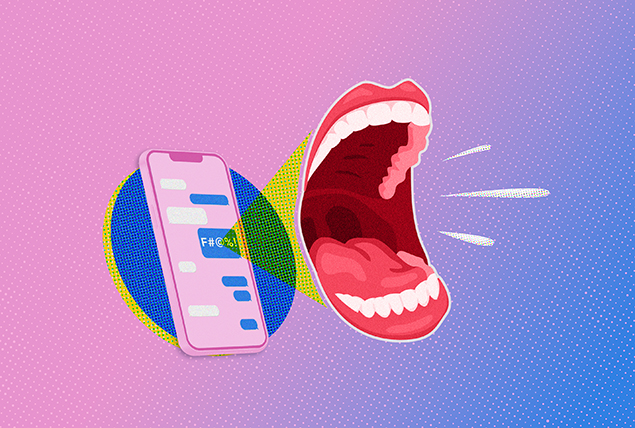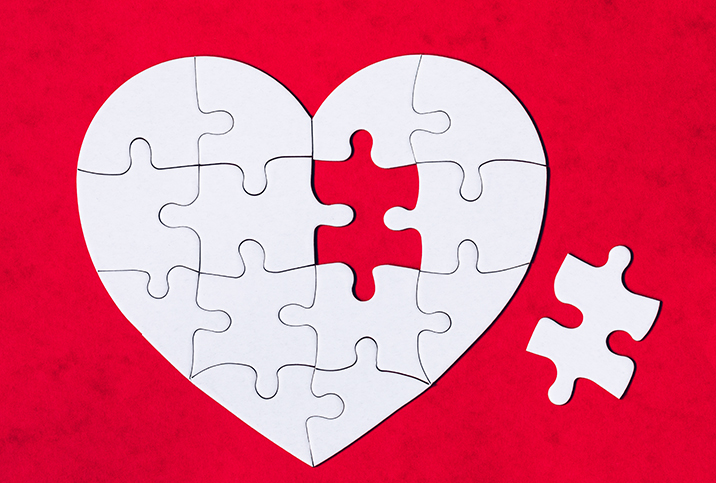'Fizzling Out' Is Ghosting's Crueler Cousin

Is "fizzling" worse than ghosting? The "Sexiest Man Alive" thinks so.
Chris Evans, in a recent interview with People magazine—the publication deemed him Hollywood's hottest heartthrob in 2022—was asked if he'd ever been ghosted.
"I feel I've experienced something much worse," said Evans, best known for his starring role as Captain America in multiple Marvel films. "I think I'd rather be ghosted because you can make up any story you want. I've had the slow decline in text responses, and you just know the person is pushing you aside casually."
'Fizzling is worse than ghosting because it keeps people engaged and hopeful, even when there is no hope.'
How did he cope?
"You tell yourself a story, whatever you have to do to get by," he said.
His response speaks to the emotional challenges fizzling can cause, even for successful and seemingly confident people, according to Susan Trotter, Ph.D., a relationship coach based in Natick, Massachusetts.
"Fizzling is worse than ghosting because it keeps people engaged and hopeful, even when there is no hope. And it may thereby prevent them from connecting with other people who are more genuinely interested and available," Trotter said. "It can have a huge effect on people's mental health and confidence."
Lillian Morales, L.C.P.C., a counselor at Thriveworks in Baltimore, agreed, saying that while neither is ideal, fizzling can be more painful.
"What do you prefer? Do you want me to rip off the Band-Aid in one pull on your arm or slowly lift at it and have every hair notice the pull?" she asked.
Was it me? Did I say something?
Fizzling can also be worse because it's less expected, said Kristal DeSantis, M.A., L.M.F.T., the founder and owner of Austin Strong Relationship Building Center in Texas. "Ghosting has become, unfortunately, kind of commonplace," she said. "So what I've noticed is more people that are being ghosted don't tend to internalize it so much as it's about them, as it's about the other person. Whereas fizzling is one where I still see people start to internalize it as, 'Did I say something? Did I do something wrong? Am I not interesting enough?'
"That is honestly the place where I've seen it be very damaging to somebody's mental health, somebody's self-esteem, because they can feel the energy is no longer there. They can feel the interest is waning. And it can lead to a lot of anxiety."
Some of that anxiety may dissipate when the relationship ends and healing begins. But experts stressed that being fizzled can cause enduring implications.
"Long-term, it can lead to issues of trust (in oneself and others), insecurity, self-esteem and confidence," Trotter said. "It can also negatively impact how they behave in the dating process going forward. Ghosting never feels good, but people can more easily put it away because the message is at least clear, even while it is passive and indirect. Fizzling keeps people entangled in a way that isn't fair and can wreak more havoc with self-esteem because it keeps you engaged and confused."
One expert found her experience with fizzling in 2010 to be incredibly negative.
"I had a man withdraw from me after about three months of dating, and I felt awful about it," said Alana McKenzie Page, a dating coach and the author of "The Art of Feminine Seduction," based in Portland, Oregon. "He took more and more time to respond to messages and then stopped altogether. I felt emotionally exhausted and my confidence was in the gutter. A few weeks later, he ended up in another relationship and it took me about three months to recover from that news."
Not long afterward, she said she was ghosted by another partner, who she called her "first love." As a result, she said she mostly avoided dating for the next few years to avoid more heartbreak.
"Fizzling and ghosting cause so much pain and anxiety in people," Page said.
What exactly is fizzling?
Where simmering can be a slow, sensual buildup to sexy time, fizzling is the death of romance by a thousand papercuts. The breakup tactic—the dating app Hinge deemed it "ghosting's passive-aggressive cousin"—involves gradually putting less and less effort into a relationship over weeks or months, becoming incrementally less attentive and available.
Eventually, the other party becomes fed up and ends things or the "fizzler" breaks off contact altogether.
The technique isn't necessarily new. In fact, some say it's the oldest trick in the book. But it has become increasingly popular. It's easy to do in the age of dating apps and social media, where inconsistent communication and sporadic in-person interactions are often the norm.
The term's origins are uncertain, but Hinge used it in its 2023 LGBTQIA+ DATE Report. The survey indicated participants disliked fizzing as much as ghosting—cutting off contact abruptly and without explanation—and said it can be equally as painful.
Unsurprisingly, 90 percent of users said they didn't want it to happen to them.
"Fizzling is one of the latest issues people face with post-date communication," the study reported. "When daters don't want to tell someone they're no longer interested, they become slower and shorter in their responses before stopping altogether, hoping it'll be less offensive."
The app denounced the tactic, writing that if someone isn't feeling it, they should send a text message saying so.
"Ultimately, ending things in a direct manner is always going to be the best approach," DeSantis noted. "It's often the more challenging approach because you have to lay out your intentions. You have to take ownership and have a brave conversation. But it is always better for the mental health of both people on either side of the equation."
Why do people ghost?
Some people simply don't care how their actions impact others. But experts said a larger number of people genuinely struggle with direct communication, especially when feelings are involved.
There are a few potential reasons why, Morales said. For example, someone may not have learned to communicate effectively as a child or might tell themselves it's kinder to withhold the truth.
In some cases, mental health conditions such as anxiety might factor in. Still, that doesn't make it OK or the impact less significant.
Why do people fizzle?
The reasons for fizzling, like the act itself, may be less sympathetic.
"People fizzle because they're bored, don't have other current options, want to keep options open and/or may just be selfish or manipulative," Trotter said.
DeSantis noted that she sees it as a direct result of the bevy of options people now have at their fingertips, thanks to social media and dating apps.
"Fizzling is where people kind of start doing the slow drip. Maybe they're not ready to let the relationship go completely, but they're maybe not sure that they've found another option yet," she said.
How to tell if you're being fizzled
It's not unusual for couples to put in a little less effort as they settle into a routine and become more comfortable with each other, experts said. Likewise, people may have periods where they're busier, more preoccupied or less communicative. But if someone consistently seems disengaged and uninterested, it may indicate a bigger problem.
"It's behavior over time that tells us about a person and engenders trust. In dating, people need to be both engaged and observing at the same time. Be curious and ask questions. Is there consistency in the words and actions of the person you're dating? How do you feel when you're with them? Are you both putting in the effort?" Trotter said.
"People who genuinely care about you will not leave you wondering how they feel," she added. "While relationships over time may go through changes and experience some dips in effort, you ideally still feel secure, connected and cared for. And if you're not sure what's going on, ask."
DeSantis explained that in a healthy relationship when someone feels they need more from the other person, they feel safe enough to bring it up and will receive an appropriate affirmative response.
"So if they say, 'Hey, I know you're really busy, and we're kind of settling into this routine, but I miss our once-a-day check-ins,' then the other person could respond with, 'Oh, shoot. Well, yeah. I'm happy to send a check-in text daily if that's how you feel. Happy to do that,'" she said.
Conversely, in a fizzling relationship, such an ask would be met with little or no response. For example, DeSantis said, they may say something like, "Oh, well, sorry, I'm really busy these days."
How to cope with being fizzled
"Be direct and ask, and you can also set some boundaries," Trotter said. "If someone is interested, they will be engaged and make you feel cared for. If that is not happening, you can ask directly and see how they respond."
Although you might hope the fizzler's feelings will change, experts said waiting it out usually costs more time and energy than it's worth.
"If you find yourself continuing in a situation in which you think you're being fizzled, think about whether this kind of relationship works for you," Trotter said. "But don't settle and accept less than what you deserve. In addition, if you find that you repeatedly find yourself being fizzled or ghosted, you may want to work with a coach or therapist to understand better why you keep being drawn to these kinds of people."


















